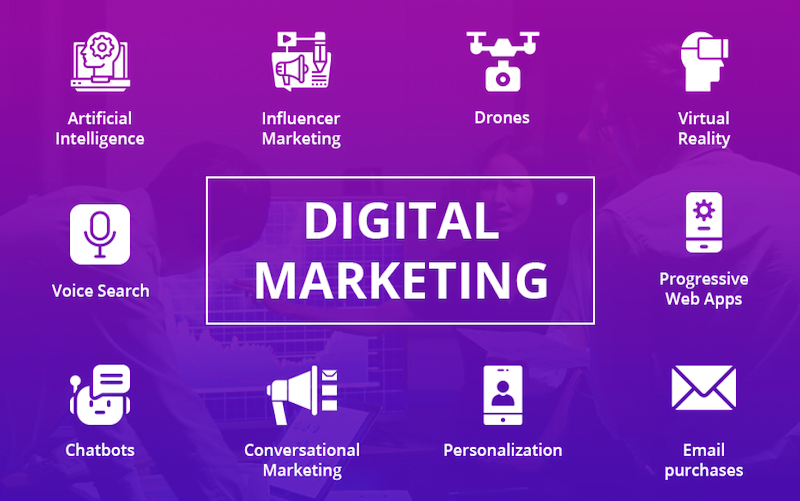
BCCAI and Digital Marketing
In the ever-evolving landscape of digital marketing, Artificial Intelligence (AI) has emerged as a game-changer, redefining how businesses interact with their customers. One of the most significant advancements in this space is BCCAI (Business and Consumer-Centric Artificial Intelligence). BCCAI offers a revolutionary approach to digital marketing, enabling businesses to create personalized experiences, optimize campaigns, and achieve unprecedented ROI.
This article covers top practices, trends, and insights for BCCAI in digital marketing. Whether you’re a seasoned marketer or new to AI-driven strategies, this comprehensive guide will equip you with the knowledge to harness BCCAI for maximum impact.
What is BCCAI? Core Concepts and Applications
BCCAI, or Business and Consumer-Centric Artificial Intelligence, represents the fusion of AI with business strategies, focusing on delivering value to both businesses and their consumers. Unlike traditional AI models, which may primarily serve the business’s needs, BCCAI ensures that the consumer’s experience is at the forefront.
Key Applications of BCCAI in Digital Marketing:
- Personalized Content Creation: BCCAI can analyze consumer data to create highly personalized content that resonates with individual preferences, enhancing engagement.
- Predictive Analytics: By forecasting consumer behavior, BCCAI helps businesses anticipate needs and trends, enabling proactive marketing strategies.
- Automated Customer Support: BCCAI-driven chatbots and virtual assistants provide real-time customer support, improving user experience and satisfaction.
Key Trends in BCCAI Digital Marketing

Staying ahead in digital marketing requires an understanding of Future trends, especially when it comes to AI. The following trends highlight the growing influence of BCCAI in shaping the future of digital marketing.
1. Personalization at Scale
BCCAI enables hyper-personalization, where marketing messages and offers are tailored to each consumer’s preferences. This trend is growing as businesses recognize the importance of delivering personalized experiences to build loyalty and drive sales.
2. Enhanced Customer Insights
BCCAI tools provide deep insights into consumer behavior by analyzing vast amounts of data. These insights allow businesses to understand their customers better and create more effective marketing strategies.
3. Automation and Efficiency
Automation through BCCAI not only reduces the manual workload but also increases the efficiency and accuracy of marketing campaigns. Automated email marketing, ad placements, and content recommendations are some areas where BCCAI is making a significant impact.
4. Voice Search and AI Assistants
The rise of voice-activated AI assistants like Alexa and Siri has opened new avenues for BCCAI in digital marketing. Businesses are optimizing content for voice search and creating voice-based advertising strategies to reach consumers more effectively.
5. Ethical AI and Transparency
As AI gets more involved in marketing, there is a greater focus on using it ethically. Consumers are increasingly concerned about how their data is used, making transparency and ethical AI deployment critical for maintaining trust.
Best Practices for Implementing BCCAI in Digital Marketing
Integrating BCCAI into your marketing strategy needs careful planning and execution. Check out these helpful tips:
1. Develop a Clear BCCAI Strategy
Before implementing BCCAI, it’s essential to define your goals. Determine what you want to achieve, whether it’s increased customer engagement, higher conversion rates, or better ROI. Your strategy should align with these goals and incorporate BCCAI tools that support them.
2. Choose the Right BCCAI Tools
There are various BCCAI tools available, each designed for different aspects of digital marketing. Whether you need tools for data analysis, content creation, or customer interaction, selecting the right ones is crucial. HubSpot, Salesforce Einstein, and Adobe Sensei are well-known options.
3. Integrate BCCAI with Existing Platforms
For seamless operation, integrate BCCAI with your current marketing platforms. This ensures that AI-enhanced capabilities are consistently applied across all channels, from social media to email marketing.
4. Leverage Data for Personalization
Use the data gathered by BCCAI tools to personalize your marketing efforts. Adjust your content to suit individual preferences for better engagement and conversions.
5. Monitor and Optimize Campaigns
BCCAI allows for real-time monitoring of marketing campaigns. Utilize this capability to track performance and make necessary adjustments. A/B testing, for example, can help determine which AI-driven strategies work best.
Challenges and Considerations in BCCAI Digital Marketing

While BCCAI offers numerous benefits, it also comes with challenges. Businesses must be aware of these potential hurdles to make informed decisions.
1. Ethical Considerations
Using AI ethically is important, especially when it comes to data. Ensure that your BCCAI strategies comply with data protection regulations and that your AI models are free from bias.
2. Data Privacy and Security
With BCCAI heavily relying on data, ensuring its privacy and security is paramount. Protect customer data with solid security to keep their trust.
3. Addressing AI Bias
AI bias can lead to unfair outcomes, especially in marketing where decisions are based on AI-driven insights. Regularly review and update your AI models to prevent and correct any biases.
4. Adoption Challenges
To use BCCAI, you’ll need to change your company’s culture and processes. Educate your team on the benefits and use of BCCAI, and consider phased implementation to ease the transition.
Measuring the Impact of BCCAI in Digital Marketing
To see how well BCCAI works, you need to measure its effect on your marketing. Here’s how you can do it:
1. Identify Key Performance Indicators (KPIs)
Determine the KPIs that are most relevant to your BCCAI strategy. These may include conversion rates, customer engagement metrics, ROI, and customer retention rates.
2. Use Analytics Tools
Leverage analytics tools like Google Analytics and AI-based platforms to track the performance of your BCCAI-driven campaigns. These tools provide detailed reports that help you understand how your AI initiatives are performing.
3. Compare Against Benchmarks
Compare your results against industry benchmarks to gauge the success of your BCCAI strategy. This helps you identify areas of improvement and adjust your approach accordingly.
4. Case Studies and Real-World Examples
Analyze case studies of businesses that have successfully implemented BCCAI in their digital marketing. These examples provide insights into the best practices and potential pitfalls to avoid.
FAQs about BCCAI Digital Marketing
1. What is BCCAI in digital marketing?
BCCAI stands for Business and Consumer-Centric Artificial Intelligence. It refers to AI technologies that focus on delivering value to both businesses and consumers through personalized marketing strategies, predictive analytics, and automated customer interactions.
2. How can BCCAI improve my digital marketing efforts?
BCCAI enhances digital marketing by enabling hyper-personalization, automating routine tasks, providing deeper consumer insights, and improving the efficiency of marketing campaigns, leading to better engagement and ROI.
3. What are the challenges of implementing BCCAI?
The main challenges include ensuring ethical AI practices, protecting data privacy, addressing potential AI biases, and overcoming adoption barriers within the organization.
4. Which industries benefit the most from BCCAI?
Industries like e-commerce, finance, healthcare, and retail benefit significantly from BCCAI as it allows them to create personalized experiences, optimize operations, and enhance customer satisfaction.
5. Is BCCAI only for large businesses?
No, BCCAI can be implemented by businesses of all sizes. While large businesses may have more resources, small and medium-sized enterprises can also leverage BCCAI tools to improve their marketing efforts and compete more effectively.
Conclusion
BCCAI helps businesses create tailored and efficient marketing strategies, transforming digital marketing. By understanding the core concepts, staying updated on trends, and implementing best practices, you can harness the power of BCCAI to elevate your digital marketing efforts.
As the digital landscape continues to evolve, BCCAI will play an increasingly crucial role in shaping consumer experiences and driving business success. Embrace BCCAI today to stay ahead of the curve and deliver unparalleled value to your customers.







